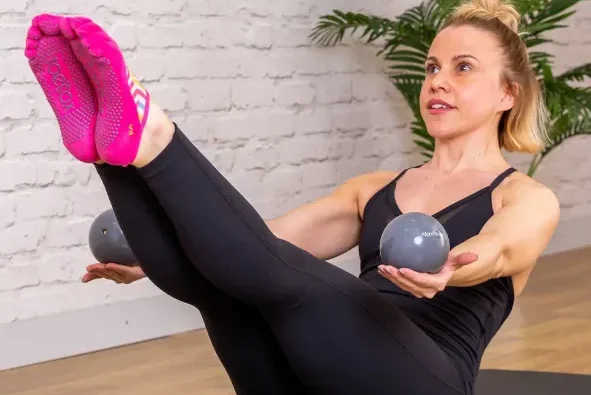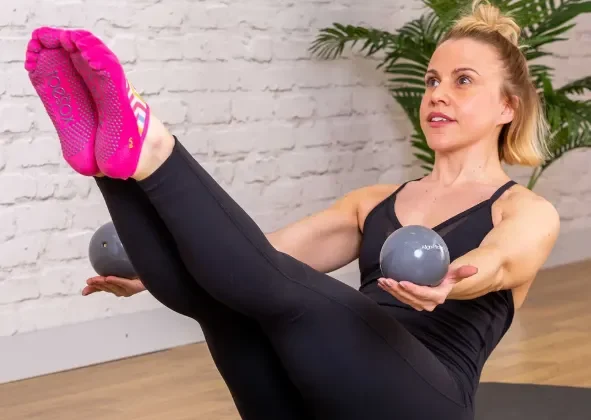Sleep and exercise are both essential for a healthy lifestyle, but what happens when you don’t get enough rest? We’ve all been there—tossing and turning all night, waking up exhausted, and wondering if we should still exercise. Deciding whether to work out when you’re sleep-deprived is a common dilemma. While exercise can boost energy and mood, pushing your body when it’s already worn out might be counterproductive. Let’s break down the pros and cons to help you decide the best approach when you’re running low on sleep.
Understanding the Sleep-Exercise Relationship
Sleep plays a vital role in muscle repair, memory consolidation, and hormone regulation. It’s during rest that your body recovers, and key processes such as muscle repair and stress hormone regulation take place. When sleep is compromised, these functions are disrupted, leaving your body in a more fatigued state. On the other hand, exercise is crucial for physical and mental health, boosting heart health, releasing endorphins, and even promoting better sleep.
The issue arises because poor sleep can leave you feeling drained and impact your performance during exercise. Yet, exercising at the right intensity can counter some of the negative effects of inadequate sleep. So, should you work out or rest? Let’s dive into the science and see the pros and cons.
Benefits of Exercising When Sleep-Deprived
Surprisingly, there are times when exercising after a poor night’s sleep can be beneficial. Here’s why working out might actually be the right call:
- Energy and Mood Boost
Even though you’re tired, moderate exercise can increase circulation, helping you feel more energized. A 2017 study found that individuals who exercised for 30 minutes, even when sleep-deprived, reported feeling more awake and less fatigued than those who didn’t exercise. - Improved Focus
While sleep deprivation can cloud your thinking, a workout might help clear your mind. Aerobic exercises have been shown to enhance cognitive functions such as concentration and decision-making, making it easier to focus despite being tired. - Consistency and Routine
Skipping workouts can disrupt your fitness goals, especially if you’re training for something specific. Maintaining a routine—even on days when sleep is lacking—helps keep you on track with your long-term goals. - Better Sleep for the Following Night
Exercise can regulate your circadian rhythm and improve sleep quality in the long run. Just be careful not to overdo it close to bedtime, as intense exercise can have the opposite effect and keep you awake.
Drawbacks of Exercising When Sleep-Deprived
However, there are times when exercising on little sleep can be detrimental to your health. Consider these risks before hitting the gym:
- Decreased Performance
Lack of sleep negatively impacts strength, endurance, and reaction time. Studies show that sleep-deprived athletes perform worse, with slower sprint times and lower overall output. If your workout feels sluggish, you might not gain much from it. - Increased Risk of Injury
Being tired affects coordination and judgment, leading to a higher chance of injury. Whether it’s poor form or a delayed reaction, sleep deprivation can cause accidents, such as tripping on the treadmill or dropping weights. - Additional Stress on Your Body
Exercise is already a stressor on the body, and lack of sleep raises cortisol (the stress hormone). Together, these can overwhelm your system, weaken your immune response, and hinder recovery, leaving you feeling even more drained. - Reduced Gains
If you haven’t fully recovered from previous workouts due to poor sleep, pushing yourself again may not yield positive results. Instead of building strength or endurance, you might find yourself stuck in a cycle of fatigue and frustration.
How to Decide: Listen to Your Body
So, what should you do when you’re exhausted but still have a workout planned? It depends on how much sleep you’ve had, your energy levels, and your fitness goals. Here are some guidelines to help you decide:
- How Much Sleep Did You Get?
If you’ve had less than 4 hours, it’s probably best to skip intense exercise. With 5-6 hours, you can manage a lighter workout. Anything close to 7 hours? Go ahead, but reduce intensity if needed. - How Do You Feel?
If you’re extremely tired or struggling to keep your eyes open, rest might be more beneficial. However, if you feel functional but just a bit tired, a short workout might help boost your mood and energy. - What Type of Exercise Are You Doing?
High-intensity workouts like HIIT or heavy lifting require focus and energy—both of which are harder to muster without adequate rest. However, lighter exercises like walking, yoga, or cycling might be more manageable. - What Are Your Goals?
If you’re training for a big event, missing one session isn’t going to derail your progress. But if you’re just aiming to stay active, getting some movement in is better than nothing.
Tips for Exercising on Little Sleep
If you decide to work out despite being sleep-deprived, here are a few strategies to help you exercise safely and effectively:
- Lower the Intensity
Instead of doing sprints or heavy lifting, opt for a slower pace or bodyweight exercises. Aim for 50-70% of your usual intensity to avoid overburdening your system. - Keep it Short
A short 20-30 minute workout can provide benefits without exhausting you further. Consider light stretching, walking, or a low-impact workout. - Stay Hydrated and Eat Light
Sleep deprivation can dull your appetite, but your body still needs fuel. Drink plenty of water, and eat a light snack like fruit or nuts before your workout. - Warm Up Properly
Your muscles may feel stiff from lack of rest, so take extra time to warm up with dynamic stretches to prevent injury. - Listen to Your Body
If you start feeling dizzy, overly fatigued, or “off,” stop your workout. It’s okay to call it quits early and prioritize rest.
When to Skip the Workout
Sometimes, rest is the best option. If you’ve had multiple nights of poor sleep or feel unwell, it’s better to skip your workout. Activities like napping, meditation, or even light stretching can help restore energy and promote better sleep for the night ahead.
Prioritize Sleep for Long-Term Fitness Success
This debate highlights an important point: sleep is crucial. While exercising after a poor night’s sleep might offer short-term benefits, consistently depriving yourself of rest will undermine your fitness goals in the long run. To maximize performance and recovery, aim for 7-9 hours of quality sleep each night. Creating a relaxing bedtime routine, limiting screen time, and prioritizing sleep hygiene will help improve your fitness outcomes.
Final Thoughts: Finding Balance
When you’re running low on energy, there’s no need to choose between exercise and rest in a black-and-white way. A sleepless night isn’t a reason to skip movement entirely, but it is a signal to adjust your workout based on how you feel. Sometimes light exercise is the right choice, while other times, an extra hour of sleep will serve you better. Ultimately, listen to your body and find a balance that keeps you moving forward—both physically and mentally.











